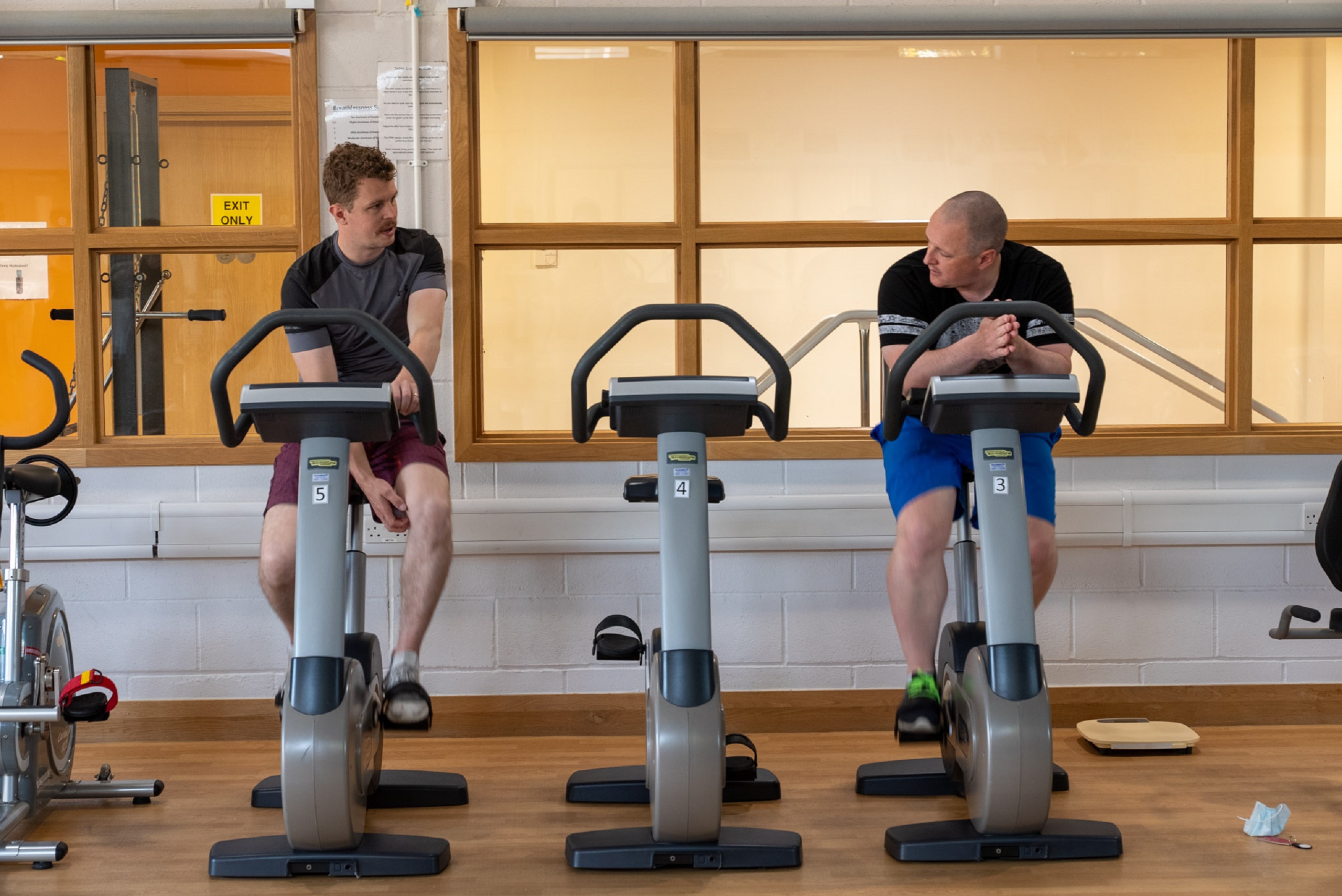For many people, the devastating impact of Covid-19 can last longer than a few weeks – in fact, it can be felt months on from when they first contracted the virus.
Some may struggle with debilitating fatigue, brain fog and any number of other symptoms – amid what has since been diagnosed as ‘Long Covid’.
Seeing the impact this has had on many individuals in our community, we launched a Covid Recovery Programme in 2021, aimed specifically at fire and rescue service personnel who are living with long-term impacts of Covid-19.
The programme includes a 5-day residential stay with a holistic programme created for each individual, along with a series of workshops on everything from nutrition to stress and sleep – as well as online sessions before and after the stay.
Beneficiaries are also offered the opportunity to meet with a psychological therapist or welfare caseworker to discuss additional support that may be available to them, both within and outside our charity.
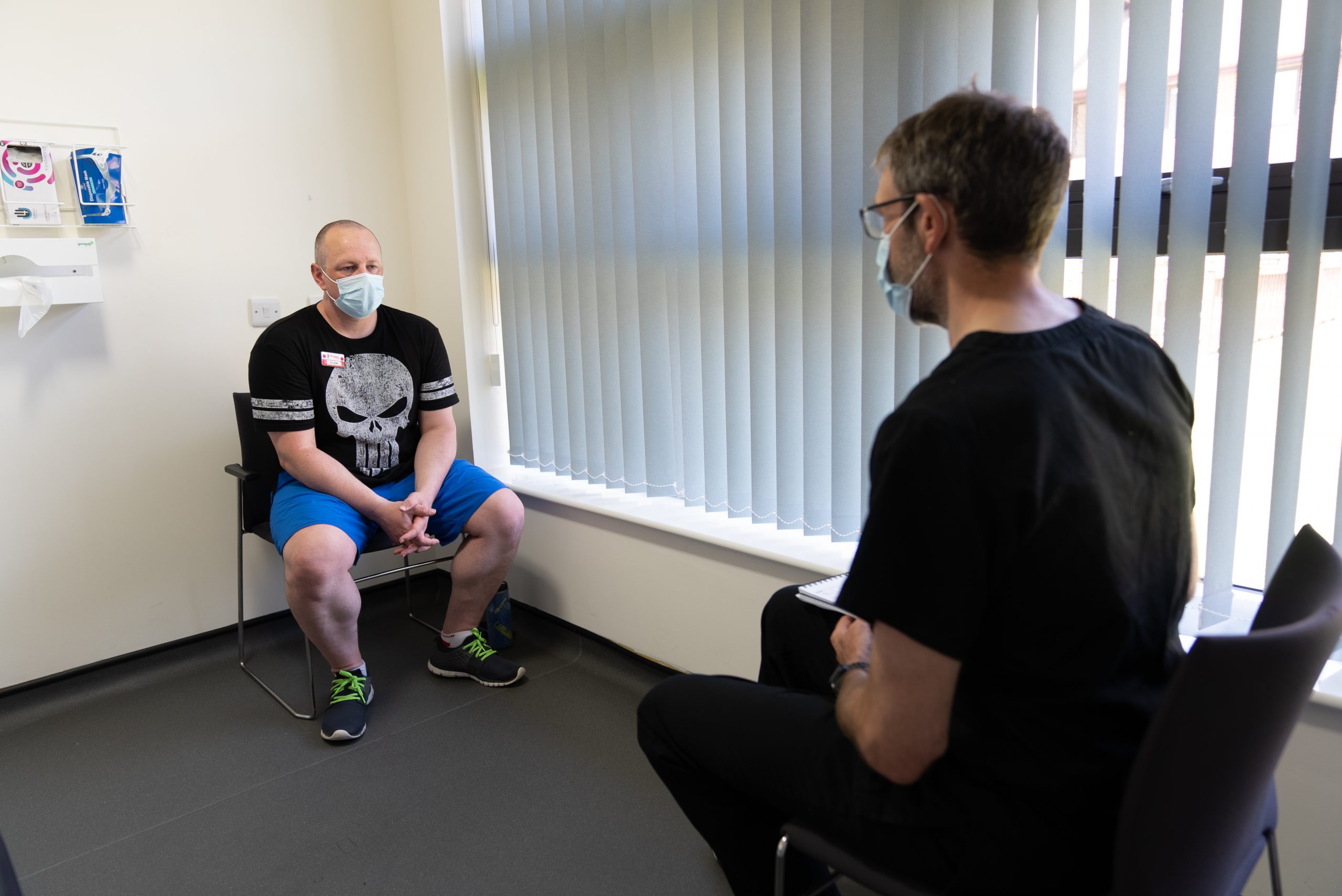
Our assessment practitioner team initially take the time to chat with our beneficiaries to understand their needs and what support we can offer. For some this may be remote support through our digital programme, for others a stay at the centre may be appropriate. For those who we feel we can support through our Covid Recovery Programme, beneficiaries are welcomed for the five-day stay.
Our Physiotherapist Peter Raistrick, who has worked the programme, explains: “They arrive on a Sunday afternoon and get settled into the accommodation. Then on the Monday morning we have an initial meet and greet to outline the course to them. They receive a physio assessment where we’ll pull an individual programme together.
“From then on, they have a timetabled programme for the rest of the five days. We try to have a little flexibility in it because we never really know how people will react and deal with what they’re doing.
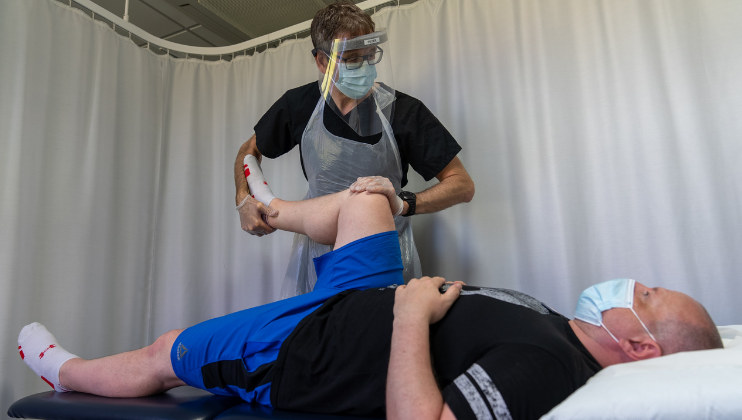
“The structure tends to mix a number of physical sessions – be it their individual, tailored exercise programmes or some relaxation work, perhaps a bit of yoga, some breathing exercises and some hydrotherapy – with workshops on things like stress and anxiety and, if they wish, time with a psychological therapist or welfare caseworker. How much of that they participate in is, to a degree, up to them.”
Craig Williamson, who was one of our Exercise Therapists at Marine Court when the programme launched and is now a Wellness and Behaviour Change Coach, spent dedicated sessions in the gym with each beneficiary – either individually, or as part of a group.
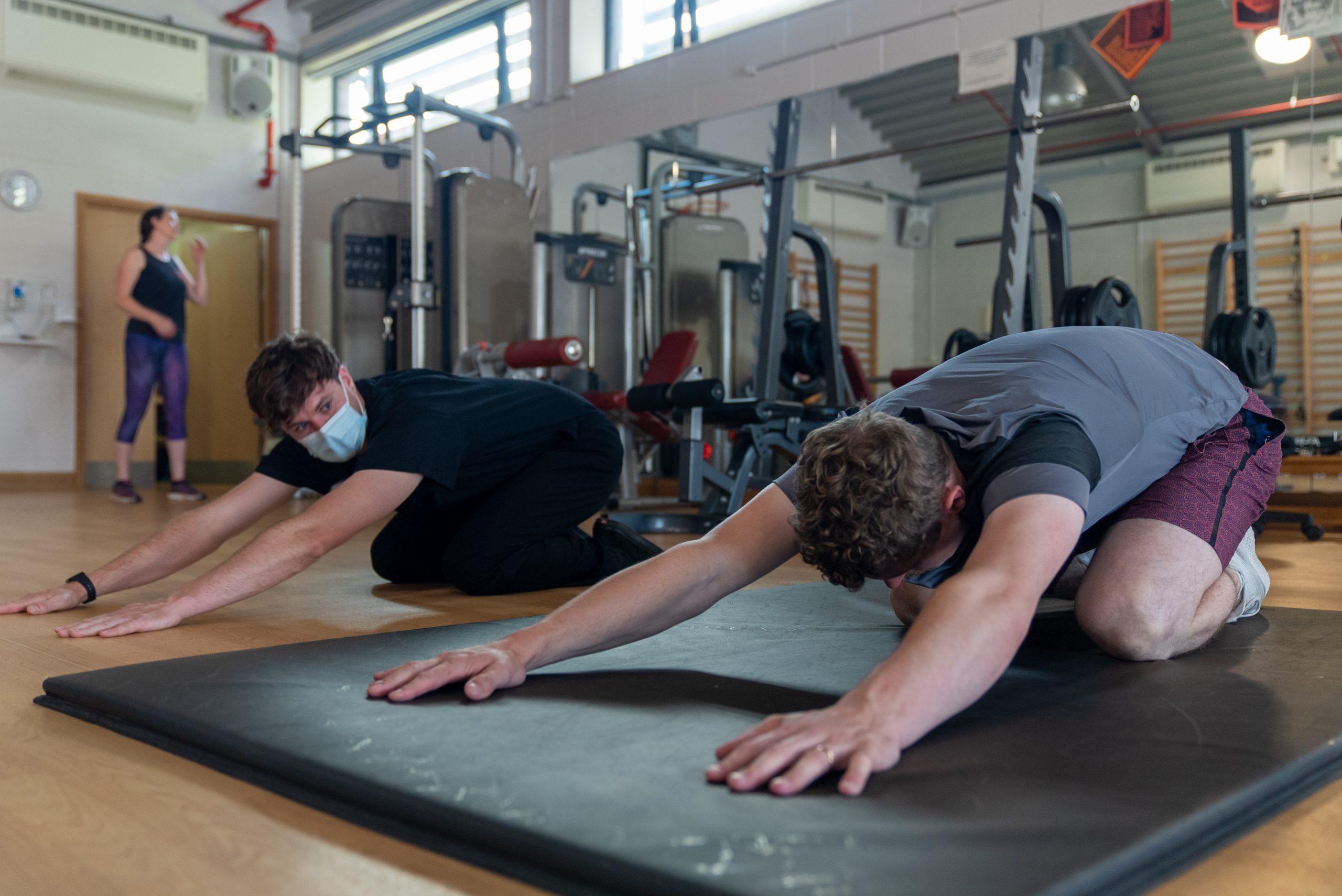
“We use an app called Salaso which is where we can give individual exercises to people,” says Craig. “Salaso is used differently with different people. We can upload any exercise we want onto it and part of the assessment process is trying to determine what exercises are appropriate for them, before uploading them onto the app. We also update it as we go and then during the week we can see how people are and maybe update the exercises.
“For anyone that was coming down here and felt a bit nervous, I’d just say that it is tailored to your needs. A lot of the sessions during the week are optional, so it’s not compulsory to come to them all. Sometimes if you need to have a little extra rest, then you need to and that’s fine.”
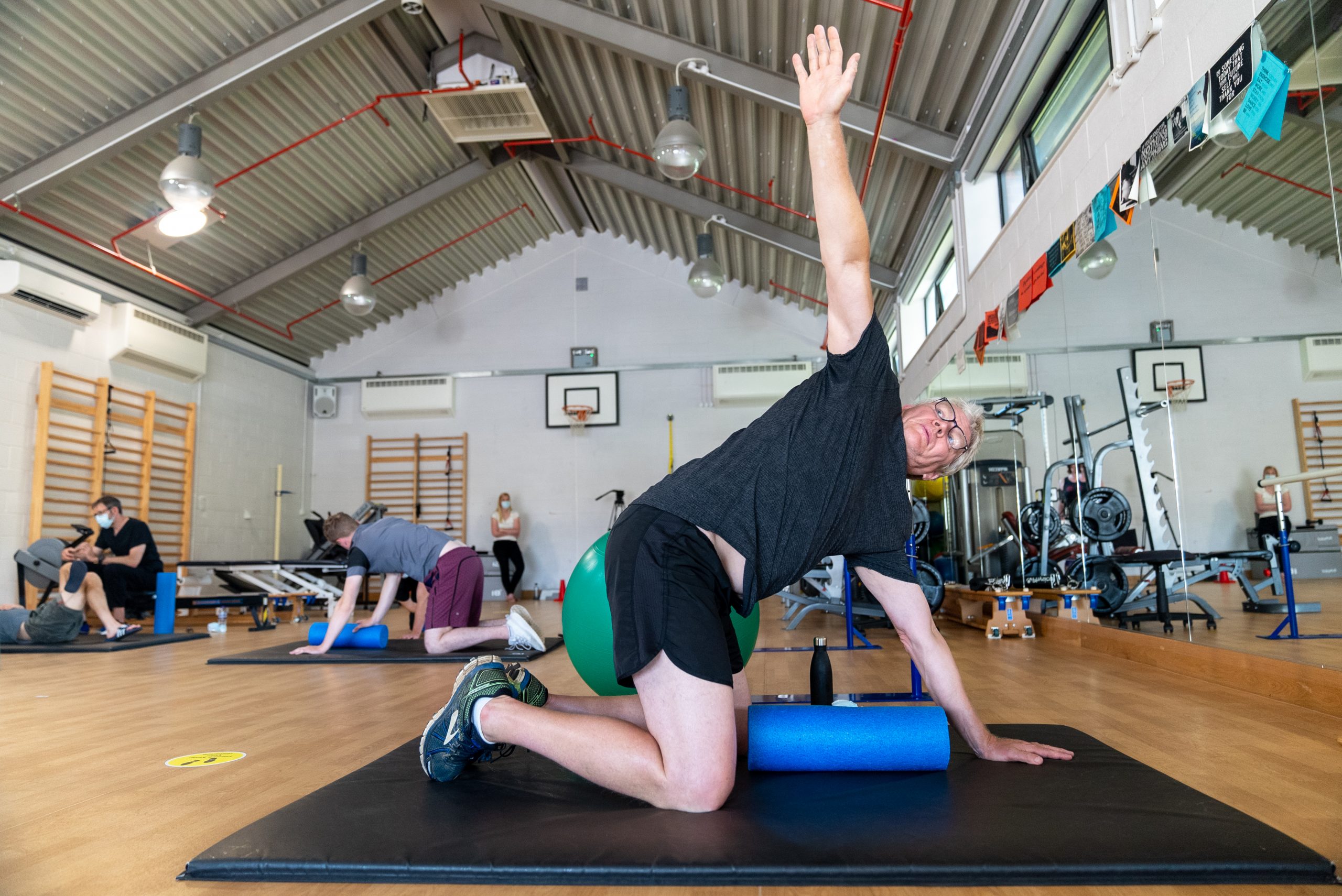
Peter adds: “The crux of what we do is, we try and give them a set of tools to help them manage the condition as best they can. Then they can employ those when they go away from here.”
Here you can meet some of the beneficiaries who have taken part in the programme…
Dan: “It’s validated the experience I’ve gone through”
Dan Coward, a retained firefighter with Hereford and Worcester FRS, attended the programme earlier this year after first getting Covid-19 in March 2020. He has been dealing with the aftermath of it ever since.
He says: “My initial infection was horrendous, it was very much not knowing if you’re going to wake up the next day – terrifying, Then after that it came in waves.”
Dan initially dealt with the virus at home, as hospitals were so packed, but as he got progressively worse he later spent a short stint in hospital in the July, as his weight plummeted.
“At that point my wife and I had to go and live with my parents for a while, because I just couldn’t do anything,” he adds. “We’d just had our son as well and I couldn’t really do normal things. Things have definitely got better since I was in hospital, but when it came to 2021, I overdid it a little at Christmas and I paid the price in January. I got very low and I did reach out to the Brigade at that point.
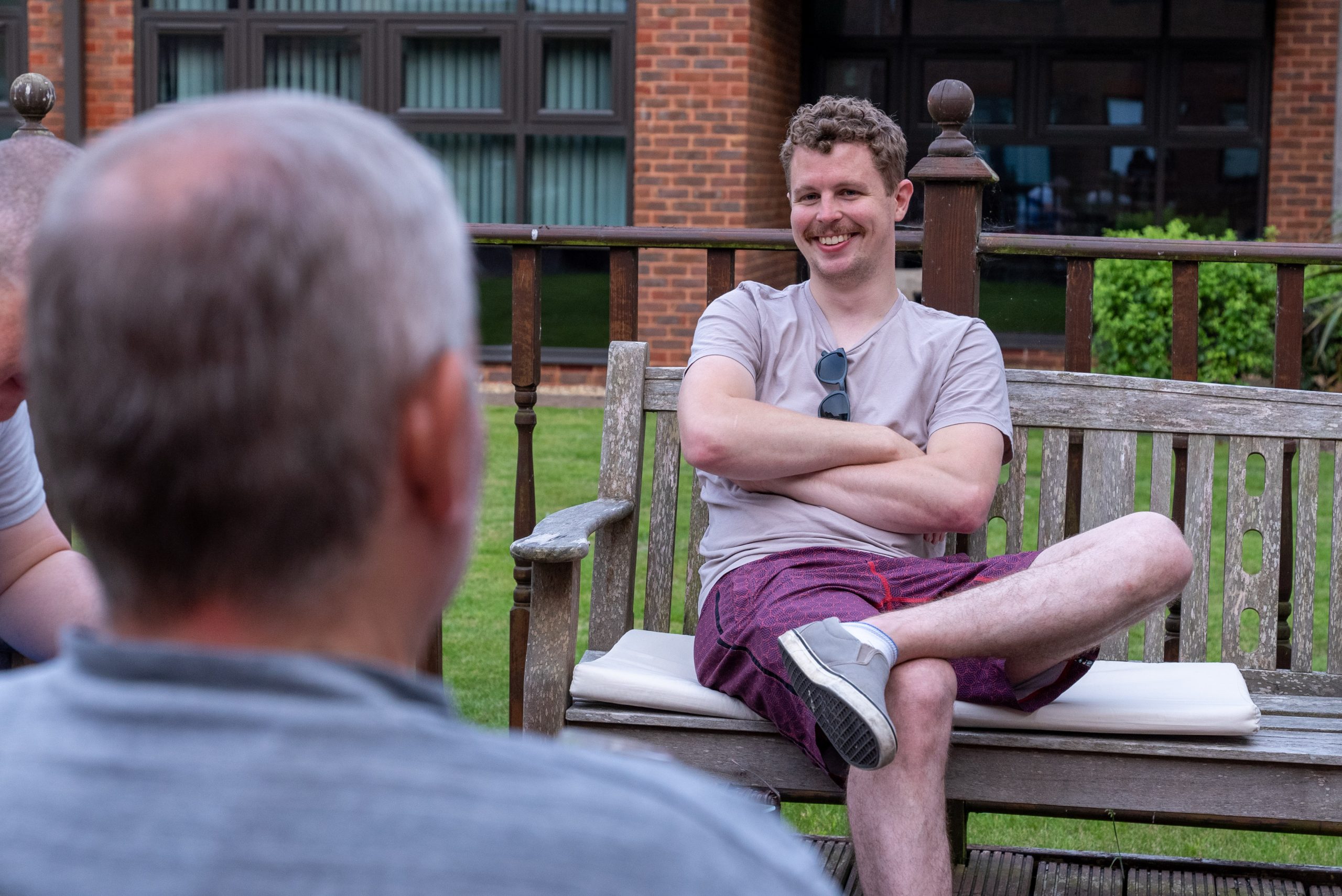
“Coming on this course has been reassuring, it validates in some ways the experience I’ve gone through. As a retained firefighter, when you’re off sick, you’re not a bum on a seat. You’re just taking up a space that they can’t fill. I felt like a fraud for a long time, so that was hard.”
You can read Dan’s full story here.
Melanie: “I don’t feel alone with it anymore”
Melanie Davis, an on-call firefighter with Devon and Somerset FRS, has struggled with severe fatigue since contracting Covid-19 – meaning she’s been forced to spend a lot of time off the run.
She says: “Fortunately I wasn’t hospitalised, but it was a really awful virus, It was a good two weeks of being almost bed-ridden. I assumed I’d get better soon after, especially when my energy started picking up, but then I got knocked back.
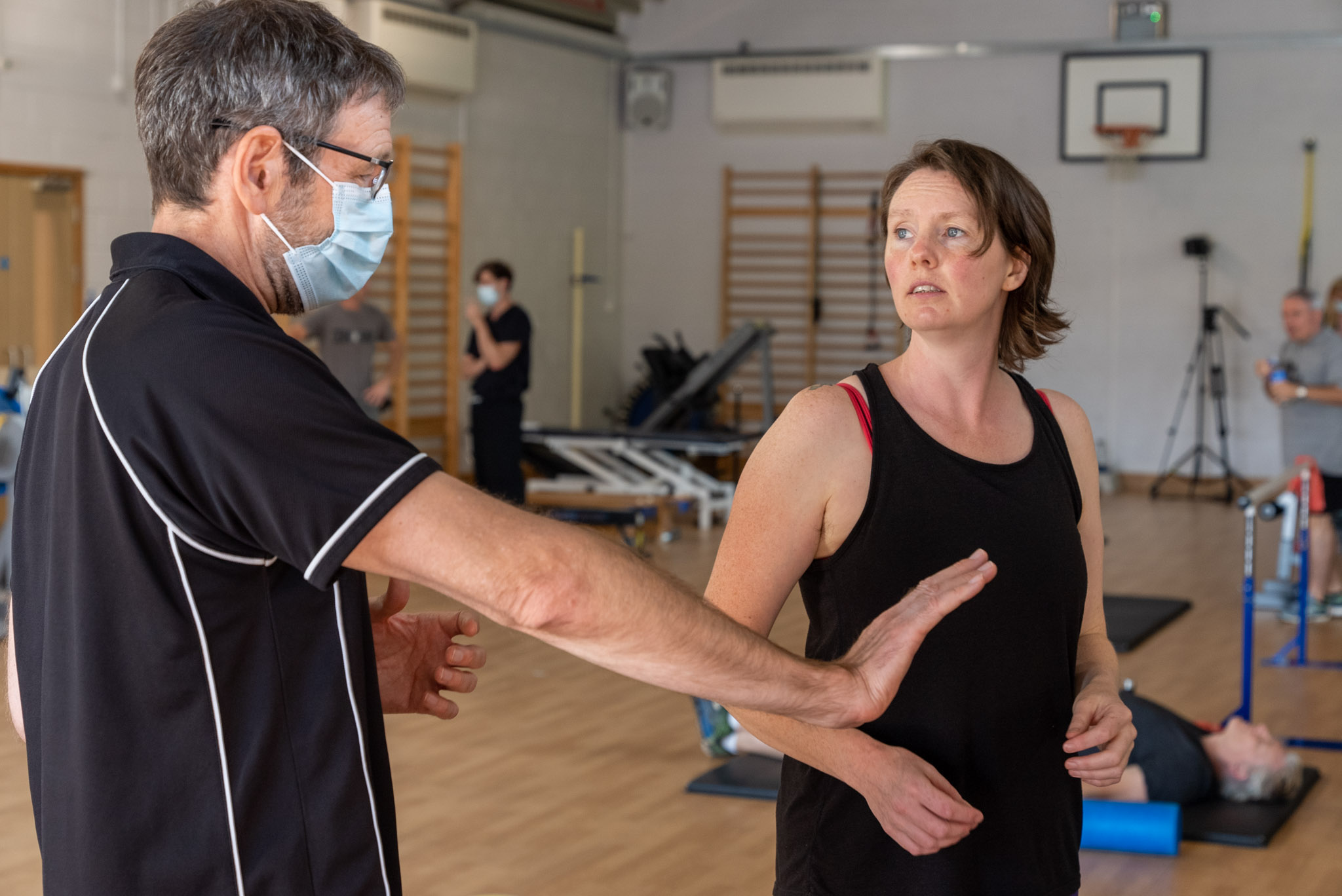
“Mostly for me I suffer with fatigue. I’ll be really wiped out if I manage to get up and take the dog out or something, I’ll be back in bed in a day. And that could last a couple of weeks.
“It was someone in the fire service that rung me about this Covid Recovery Programme and asked me if I’d want someone to give me a call about it. It’s been great. We’ve done talks on things like nutrition, anxiety, exercise, and one of the big benefits has been talking to the people here and hearing their experiences – similarities and differences they’ve had.
“To have this opportunity is amazing, really amazing. It’s not feeling alone with it anymore.”
Alan: “It’s been the most help I’ve had”
Father-of-two Alan Morris, a Group Manager with Greater Manchester FRS, was off work for six months as he struggled with the aftermath of Covid-19 last year.
He says: “I got Covid in April 2020 and it was my partner at the time who picked up that I was coughing quite a bit. I started getting better after two weeks, with things easing off a bit, but then I went really downhill again. It was constant coughing, to the point I could hardly breathe.
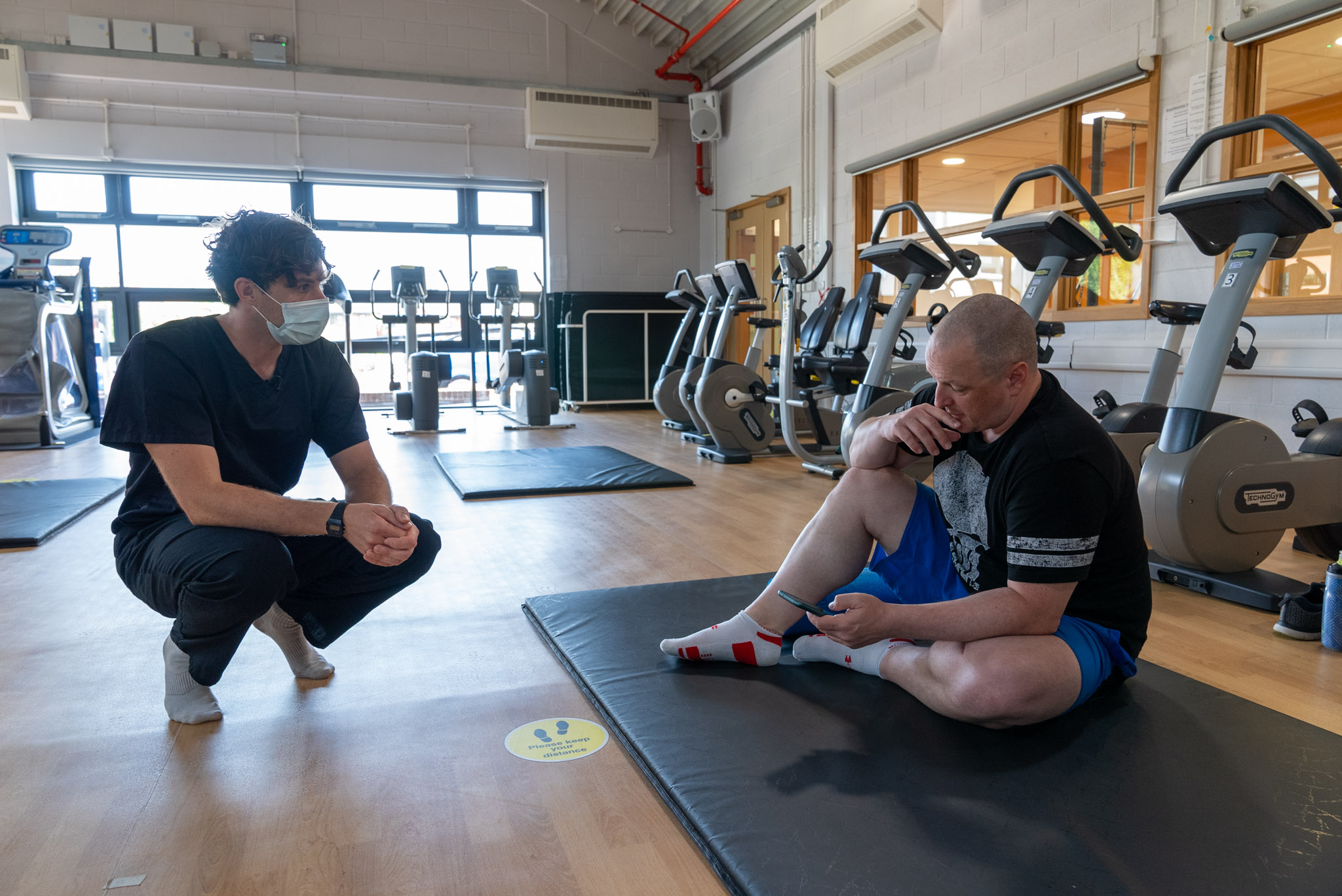
“Since then it’s just basically been so up and down with so many different symptoms. I’ve suffered with tinnitus, shakes, really bad dizziness, brain fog – where you’re totally wiped out.
“I went up to Jubilee House initially. It was similar to the programme at Marine Court, having tailored exercises and support. It was also about having a rest from everything. That’s not really practical when you’ve got a family and normal life going on.
“It’s been the most help I’ve had off anyone, for everything, it’s just been brilliant. They put us in contact with a couple of other guys who’d been suffering and organised Zoom meetings for us, so we’ve been chatting constantly every few weeks. I think, if I’d not contacted the charity I don’t know where I’d be up to with things. Probably still suffering and battling away with my doctors.”
Brendan: “I wasn’t aware of the quality of the facilities”
Brendan O’Brien has been a wholetime firefighter with London Fire Brigade for the last 25 years, but has been forced to spend an extended amount of time off sick due to the ongoing impacts of Covid-19.
He says: “Last December I got a positive test and it spiralled downhill pretty quickly. I was hospitalised and quite seriously ill with it.
“I didn’t get better for a while and I still haven’t really, I’ve just learnt to live with chronic symptoms of Long Covid – some of them come and go.

“I’ve not been able to look after my own children through this, I just haven’t had the energy. You can imagine how upsetting that is.
“The charity really was the first positive contact I’d had with any organisation other than my family, friends and work. I initially joined Zoom meetings with other Long Covid sufferers and we all found that absolutely fantastic, really supportive, really empathetic. That was, and still is, really helpful and a big part of my recovery.
“This week [at Marine Court] has been fantastic. It provides you with a pathway to get better. They give you a chance to concentrate on yourself. I wasn’t aware of the quality of the facilities at the three sites, plus the superb staff.”
If you would like more information about the symptoms of Long Covid, please visit www.nhs.uk/conditions/coronavirus-covid-19/ and if our programme is something that interests you, please contact us on 0800 3898820 to see how we could support you.

